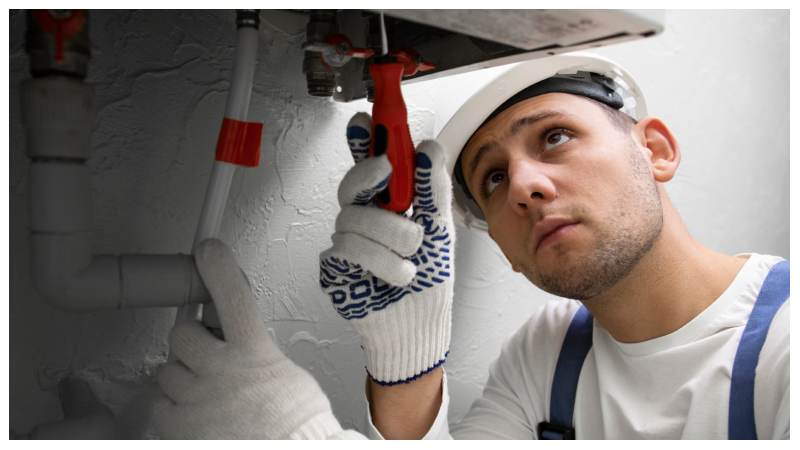Heating and cooling systems, including air conditioners and water heaters, are essential components of any comfortable home. Their efficiency and longevity can directly impact your energy bills and overall home comfort. Many homeowners invest in these systems but often overlook the simple steps that can help them last longer. Regular maintenance, careful usage, and timely attention to minor issues can significantly extend their operational life. We will explore practical strategies to keep your AC and water heater running efficiently for years. These methods not only save money but also ensure that your home remains a safe and comfortable environment. By following these actionable steps, you can prevent costly breakdowns and enjoy reliable performance from your systems.
Practical Steps to Prolong Your AC & Water Heater
Schedule Regular Maintenance
Routine maintenance is crucial for both air conditioners and water heaters. For AC units, scheduling inspections in Washington, PA, before peak seasons ensures that components such as coils, filters, and refrigerant levels are in optimal condition. Dirty filters reduce airflow, causing the system to work harder and wear out faster. Cleaning or replacing filters every one to three months can prevent strain and maintain efficiency. Water heaters benefit from annual inspections to check for leaks, corrosion, and sediment buildup in the tank. Flushing the tank once a year removes mineral deposits that can reduce heating efficiency and shorten the system’s lifespan. Regular professional checkups, combined with basic homeowner maintenance, create a proactive approach that prevents major problems.
Monitor and Adjust Temperature Settings
Careful temperature management can significantly reduce wear and tear on your systems. For air conditioners, setting the thermostat a few degrees higher in summer reduces constant strain on the compressor and fan. Using programmable thermostats allows for automatic adjustments based on your schedule, minimizing unnecessary operation. Water heaters can also benefit from moderate temperature settings. Maintaining a water temperature of around 120°F prevents overheating, reduces energy consumption, and slows mineral buildup. Avoiding extreme temperature swings prevents components from deteriorating prematurely. By monitoring and adjusting settings thoughtfully, you ensure that your AC and water heater operate under conditions that promote longevity without compromising comfort.
Keep the Area Around Units Clear
The placement and surrounding environment of your AC and water heater can influence performance and durability. For air conditioners, outdoor units should have at least two feet of clearance on all sides to allow proper airflow. Remove debris, leaves, and vegetation that can obstruct vents and coils. Indoor water heaters require a clear area around them to allow proper ventilation and prevent accidental damage. Cluttered spaces can restrict airflow, cause overheating, or make it difficult to spot leaks and other issues early. Ensuring adequate space around your units supports efficient operation and reduces the risk of damage that can shorten their functional life.
Address Issues Promptly
Ignoring minor issues can lead to costly repairs or complete system failure. Strange noises, reduced cooling or heating, and water leaks are warning signs that should be addressed immediately. For air conditioners, unusual sounds may indicate problems with the motor, fan, or refrigerant system. Delaying repairs can cause further damage and decrease overall efficiency. Water heaters that exhibit signs of leakage, corrosion, or inconsistent water temperature should be inspected and repaired promptly. Promptly addressing issues prevents them from escalating into major failures, ensuring that your systems continue to function reliably and last longer.
Use Energy-Efficient Practices
Energy-conscious habits can extend the life of your AC and water heater by reducing constant stress on their components. For air conditioning, closing blinds during the hottest part of the day, using ceiling fans to circulate cool air, and sealing gaps around doors and windows reduce workload. For water heaters, insulating the tank and hot water pipes helps maintain consistent temperatures, reducing the frequency of heating cycles. Limiting excessive hot water usage during peak hours also minimizes strain on the water heater. Incorporating energy-efficient practices into daily routines not only saves on utility bills but also contributes to the longevity of your systems.
Inspect and Maintain Ductwork and Piping
The efficiency of your AC and water heater depends heavily on the condition of ducts and pipes. For air conditioners, leaks in the ductwork can reduce airflow, causing the system to work harder to achieve the desired temperature. Sealing and insulating ducts ensures optimal performance and reduces wear on the unit. Water heaters require regular checks of piping and connections to prevent leaks and corrosion. Inspecting valves, anode rods, and fittings can prevent premature failure. Properly maintained ductwork and plumbing systems ensure that your AC and water heater operate smoothly, avoiding unnecessary strain that can shorten their lifespan.
Protect against Power Surges
Electrical issues can damage sensitive components in both air conditioners and water heaters. Installing surge protectors or using whole-home protection systems safeguards motors, compressors, and control boards from sudden voltage spikes. Power surges can cause irreparable damage, leading to costly replacements. Even minor fluctuations over time can gradually degrade electrical components. By investing in electrical protection, you reduce the risk of damage, ensuring your systems continue to perform efficiently and last longer. This simple precaution can prevent unexpected failures and extend the operational life of your equipment.
Maintaining the longevity of your air conditioner and water heater requires consistent care, attention, and smart usage practices. By following the steps outlined above, including regular maintenance, careful temperature management, clear surroundings, prompt issue resolution, energy-efficient habits, proper care of ductwork and piping, electrical protection, and timely upgrades, homeowners can significantly extend the operational life of their systems. These actions not only prevent costly repairs but also ensure reliable performance, consistent comfort, and energy savings. Investing time in maintaining your AC and water heater today can result in years of dependable service, creating a comfortable and well-functioning home environment for the long term.

